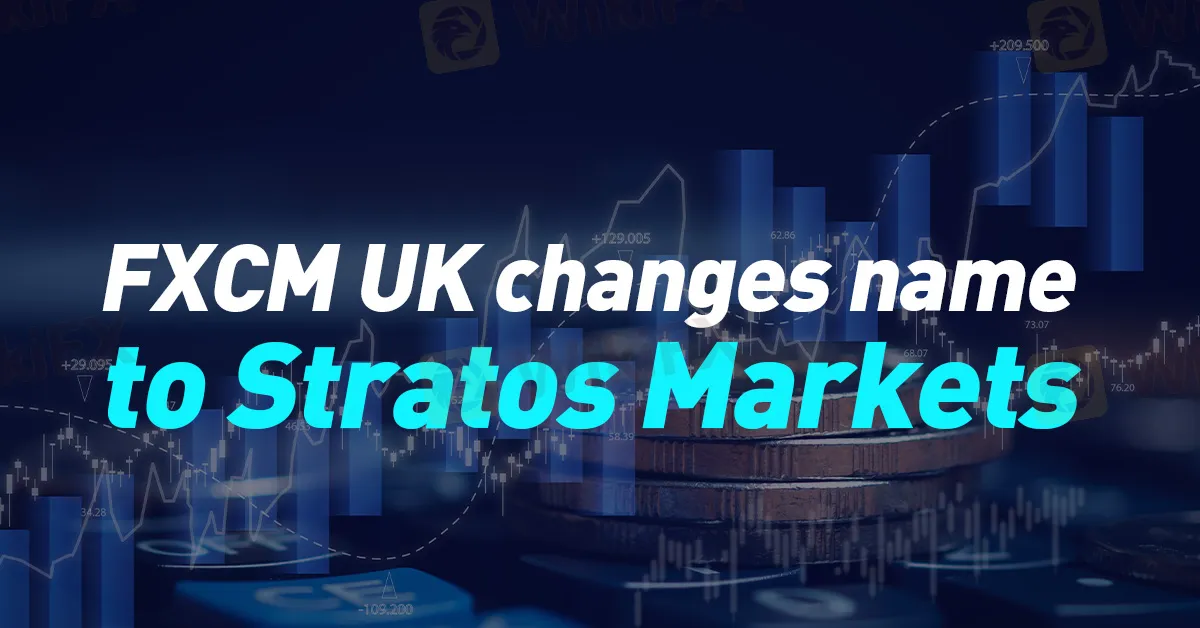简体中文
繁體中文
English
Pусский
日本語
ภาษาไทย
Tiếng Việt
Bahasa Indonesia
Español
हिन्दी
Filippiiniläinen
Français
Deutsch
Português
Türkçe
한국어
العربية
FXCM UK changes name to Stratos Markets
Abstract:Forex Capital Markets Limited, the UK subsidiary of the FXCM Group, has changed its name to Stratos Markets Limited.

Forex Capital Markets Limited, the UK-based subsidiary of the FXCM Group, recently underwent a significant rebranding effort and is now officially known as Stratos Markets Limited. This change, which occurred on September 10th, aligns with a broader strategy by FXCM Group to rename its European subsidiaries.
The transformation from Forex Capital Markets Limited to Stratos Markets Limited follows a similar renaming process for FXCM's Cyprus-based entity, which is now Stratos Europe Ltd. These changes are part of FXCM Group's strategic rebranding initiatives.

FXCM Group has an interesting history, tracing its origins back to 1999 in New York. The company emerged from the now-defunct Global Brokerage Inc., which filed for bankruptcy in 2017.
As of September 10th, the UK company registry officially reflects the name change from Forex Capital Markets Limited to Stratos Markets Limited. This update is also visible on the FXCM UK website, where Stratos Markets Limited is now the designated entity responsible for providing trading services.
However, it's important to note that, as of the last available information, the Financial Conduct Authority (FCA) registry still lists the company under its previous name, along with its license number, which is 217689.
The FXCM UK website has been updated to include the following information:
“Stratos Markets Limited is an operating subsidiary within the FXCM group of companies (collectively, the ”FXCM Group“). All references on this site to ”FXCM refer to the FXCM Group.
Stratos Markets Limited is authorized and regulated in the United Kingdom by the Financial Conduct Authority. Registration number 217689. Registered in England and Wales with Companies House company number 04072877.

This rebranding signifies a new chapter for the company and its continued commitment to providing trading services under the Stratos Markets Limited banner.

Disclaimer:
The views in this article only represent the author's personal views, and do not constitute investment advice on this platform. This platform does not guarantee the accuracy, completeness and timeliness of the information in the article, and will not be liable for any loss caused by the use of or reliance on the information in the article.
Read more

Top Reasons Why FXCM is Your Go-to-Broker for Forex Trading
A revered broker name is what you want to associate with being a forex trader. Fortunately, you have plenty of such names on WikiFx where the best forex brokers and regulators are listed to ensure your transaction is genuine. One such name is FXCM, a regulated forex broker in the United Kingdom (UK). Let’s check out more details about FXCM through this article.

Scammers Use AI to Fake Lim Guan Eng’s Support for Investment Scheme
A fake video showing former Penang Chief Minister Lim Guan Eng promoting an investment scheme has started spreading online. Lim has come forward to say the video is not real and was made using artificial intelligence (AI).

IronFX: A Closer Look at Its Licences
In an industry where safety and transparency are essential, the regulatory status of online brokers has never been more important. For traders seeking to protect their capital, ensuring that a platform operates under recognised and stringent oversight can make all the difference. Keep reading to learn more about IronFX and its licenses.

Spot vs Forward Contracts - Which Should You Choose?
Mulling foreign exchange contract options - Spot vs Forward - to begin or consolidate your trading journey? Read this comprehensive guide explaining the differences between spot and forward contracts. You can select better using it.
WikiFX Broker
Latest News
IronFX Broker Review 2025: A Comprehensive Analysis of Trustworthiness and Performance
OctaFX Flagged by Malaysian Authorities
OctaFX and XM Trading Platforms to Be Blocked in Singapore
Nonfarm Data Lifts Market Sentiment, U.S. Stocks Rebound Strongly
ATFX Opens New Office in Cape Town's Portside Tower to Expand in Africa
Tighter Scrutiny: Finfluencers Face Global Crackdown Amid Rising Risks
Interactive Brokers Enhances PortfolioAnalyst with New Features
IronFX: A Closer Look at Its Licences
Eid ul Adha Celebration Continues – Grab the STARTRADER Offer Now!
2025 Broker Real - World Reviews: Share Your Insights & Grab Thousands in Rewards!
Currency Calculator


